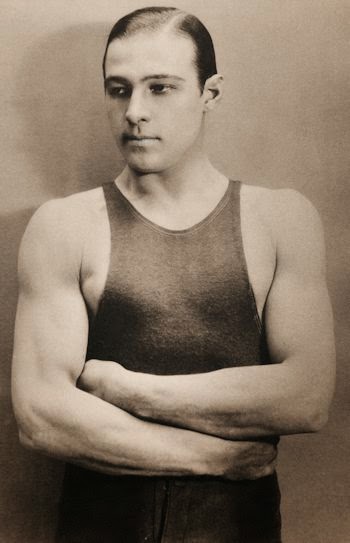A Day of Silents - The San Francisco Silent Film Festival
Join in on the fun at the Castro Theater on December 7, 2019 for the San Francisco Silent Film Festival's annual Day of Silents. Member price is $70 and non-member is $80. A total bargain it is, too. A fabby lineup of great films! Not to be missed!
The day starts with hilarity from Roscoe Arbuckle and Buster Keaton in three short films, including the riotously funny The Cook (1918, d. Roscoe Arbuckle), Good Night, Nurse (1918, d. Roscoe Arbuckle), and The Garage (1919, d. Roscoe Arbuckle). At the piano will be the esteemed Donald Sosin. I have seen The Cook and it makes me scream with laughter every tie. The other two films are new to me, so I am looking forward to this.
Redskin (1929) stars Richard Dix in the story of a Navajo man, Wing Foot (Richard Dix), who was taken as a child to a US government boarding school and forced to assimilate resonates with contemporary headlines. Victor Schertzinger’s film explores the damage done by prejudice as it brings up issues of racial identity and cultural insensitivity to tell Wing Foot’s story. The film’s title acknowledges a racial slur used against its protagonist and it is used to illustrate intolerance, not endorse it. Wing Foot navigates between his western education and the traditions passed down by the tribal elders. Shot in breathtaking two-color Technicolor at locations in New Mexico and Arizona (including Acoma Pueblo and Canyon de Chelly)—the film changes from color to black-and-white when it leaves the Navajo and Pueblo lands. Live musical accompaniment by Mont Alto Motion Picture Orchestra
Woman with a Movie Camera: The Films of Alice Guy-Blache is next on the docket. I believe this will be the first presentation as the San Francisco Silent Film Festival of any of cinema pioneer Alice Guy-Blache. Introduced by Prof. Shelly Stamp (she of, among other great things, Pioneers: First Women Filmmakers from KINO) The program includes Midwife to the Upper Class (1902), The Results of Feminism (1906), The Drunken Mattress (1906), Madame Has Her Cravings (1906), THE GLUE (1907), and THE OCEAN WAIF (1916). Donald Sosin will accompany the films.
The Marriage Circle (1924) brings the return of Ernst Lubitsch to the Castro screen along with Florence Vidor (of who I have become a big fan). Ernst Lubitsch’s adaptation of the play Only a Dream was his second American film and would set the tone for all his sparkling comedies to follow. The titular “circle” alludes to the ring of infidelities that animate the plot—and while the story is exquisitely plotted with headlong narrative twists and sophisticated intelligence, it’s the intricacies of human behavior that concern Lubitsch. An expert at adapting dialogue-ridden theater to silent films with few intertitles, Lubitsch works narrative magic with knowing looks and subtle gestures—his characters are brimming with humanity ... and hilarity. Set in Vienna, “the city of laughter and light romance,” The Marriage Circle centers on two couples—the sublimely-in-love Monte Blue and Florence Vidor, and the less-so Adolphe Menjou and Marie Prevost. The New Yorker’s Richard Brody writes, “Ernst Lubitsch turned a drawing-room farce into bittersweet chamber music.” This will be presented in a sparkling 35mm print from the Museum of Modern Art and musical accompaniment by The Mont Alto Motion Picture Orchestra. Not to be missed!
The Day of Silents concludes with the masterpiece from Universal Pictures the 1925 Lon Chaney film The Phantom of the Opera. What more can I say about this film? I have seen it numerous times, this will be my first at the Castro and I could not be more excited. The musical accompaniment will be by the much lauded Berklee Silent Film Orchestra.
As you can see, it will be a very FULL day and I am looking forward to every program of the day. I am going to be exhausted when I get home! See you there!








Comments